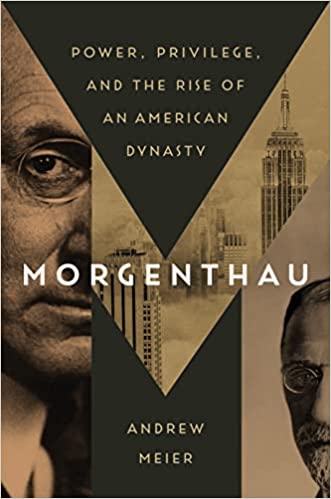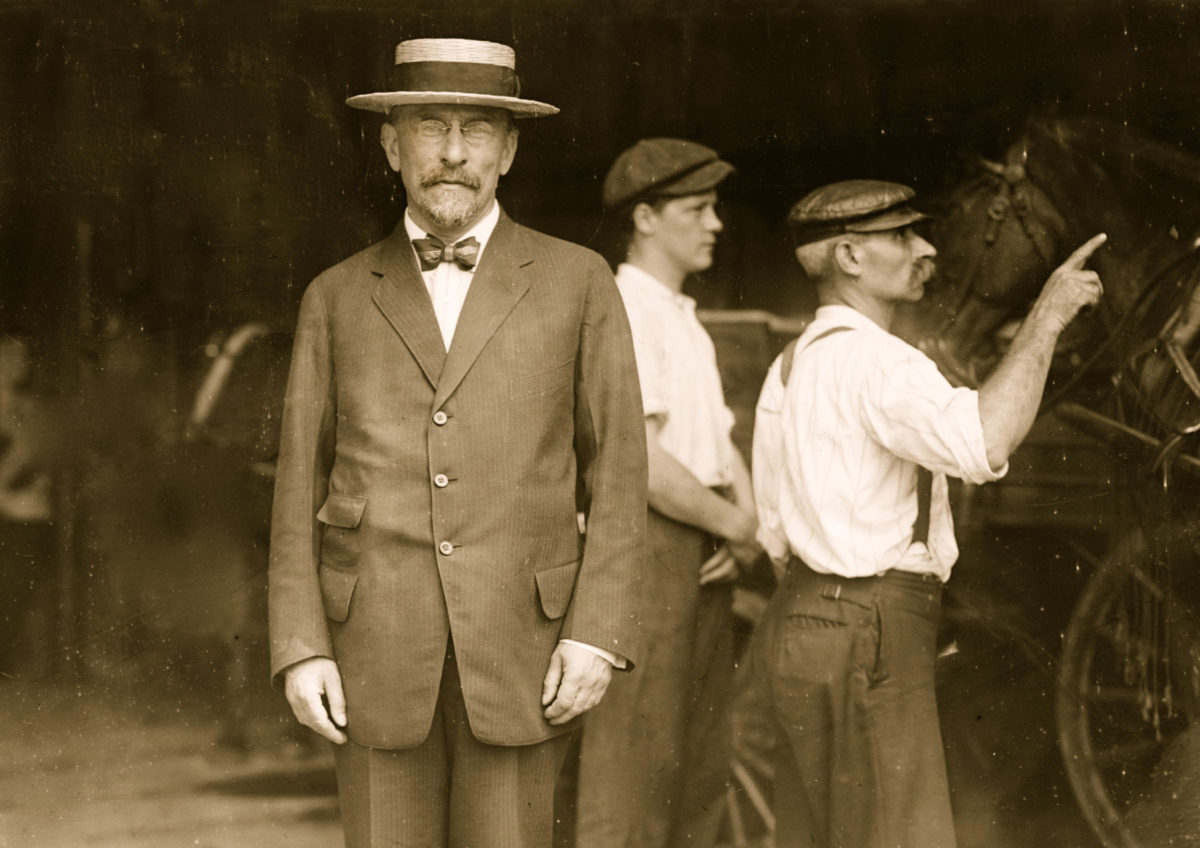In this vast yet intimate biographical triumph, author Andrew Meier steers compellingly away from the sovietological perspective of his years as a Time correspondent in Moscow, which underpinned his books “Black Earth” (2003) and “The Lost Spy” (2008). This time, Meier profiles a German Jewish family’s century-and-a-half of remarkable ascent in the United States.
With verve, detail, and an engaging style that make the 900-page “Morgenthau” as much of a challenge to put down as hold up, Meier tells a lollapalooza of an immigrant story that intertwines with the nation’s post-Civil War history. Carefully locating them within a large cast of supporting characters, kin and otherwise, and always alert to the personal, national and international contexts that shaped them, Meier portrays four protagonists.
Patriarch Lazarus Morgenthau, an entrepreneurial inventor with tendencies toward chicanery, kicks off the epic by succeeding wildly and abruptly failing in his native Bavaria, necessitating a desperate 1866 voyage to New York City at 50 with wife Babette and the surviving 11 of the couple’s 13 offspring. Lazarus, never comfortable in America, courses through a succession of grandiose attention-getting schemes but dies destitute.

Morgenthau: Power, Privilege, and the Rise of an American Dynasty
by Andrew Meier, Random House, 2022
If you buy something through our site, we might earn a commission.
Henry, Lazarus’ middle son — he sired seven — shows gumption and ambition from youth. He takes up the law, which leads him into real estate and immense wealth that begets a late-life turn as a Democratic Party pillar and ambassador. Henry Jr., grounded in the family fortune, is no great shakes as a scholar. He trails his bliss into farming but also heeds his plutocrat dad’s model of public service. As a confidant of friend and Dutchess County neighbor Franklin Roosevelt, Henry Jr. becomes a New Deal kingpin, a multifarious role culminating with his years as treasury secretary.
Henry Jr.’s son Robert, a decorated U.S. Navy veteran of World War II and Yale Law graduate, gets pride of place, not only front and center in the book’s opening but closing out the chronicle. Robert’s portion of the family story follows his upbringing as a scion of the titular dynasty who had ships sunk from under him in the Mediterranean and the Pacific, inspiring several of the book’s most gripping passages.
After the war and Yale, his postwar years brought a Kennedy-era appointment as U.S. attorney for the Second District of New York and then, re-elected nine times, a 34-year stay as district attorney of New York County. As Manhattan D.A., on the job until age 90, he oversaw the disposition of perhaps 3 million cases — most workaday, some notorious. Not a few of the latter involved “white-collar crime,” a category Morgenthau shepherded into the vernacular. Others were acts of horror-show violence like that visited upon the Central Park jogger in 1989. Not for nothing did TV producer Dick Wolf draw on Robert Morgenthau’s career when he fashioned the hit “ripped from the headlines” procedural series “Law & Order.”
As familiar as the final portion may be, each link in this brilliantly rendered chain of connections bears close reading. The larger multigenerational portrait that Meier completes so satisfyingly is of a remarkable family’s happinesses and unhappinesses, victories and defeats, joys and tragedies, and that family’s establishment of a legendary place for itself in a city, a country and the world.

